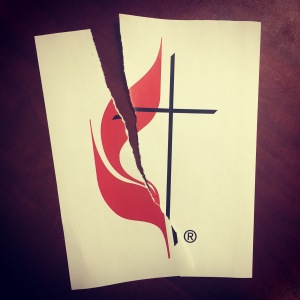This is a revision and update, sadly, of an earlier post from 2012.
“There is a river whose streams make glad the city of God, the holy habitation of the Most High. God is in the midst of the city; it shall not be moved; God will help it when the morning dawns.” —Psalms 46:4–5 NRSV
In AD 410, the Visigoths sacked the city of Rome, bringing about one of the great crises of faith of the Roman people. Had God abandoned Rome? Was the Christian God a failure, allowing something to happen that the old gods would never have?

In response, the bishop of Hippo Regius in Libya wrote his masterpiece City of God. In it St. Augustine argues that there are two “cities,” two communities defined by the object of their love. In the city of the world, the citizens love power and domination. Their rulers and those they rule are dominated by the lust for domination. They seek earthly security, success, and stability. In the City of God, the citizens love God. They serve one another out of charity and love. They live with hope in the midst of the world, as pilgrims on the journey.
Augustine went on to note that Rome was not the City of God. What fell was not God’s city, but the city of the world. God’s city endures.
 There are many people today hurting as a result of the decisions made this week by the Special Session of the General Conference of The United Methodist Church—especially our LGBTQ+ clergy, members, and their allies. The adoption of the “Traditional Plan” by 54 votes—whether or not it passes constitutional muster in the denomination—represents a statement by our global church that the UMC will not be moving toward a more inclusive and affirming posture any time soon, at least not in its current form.
There are many people today hurting as a result of the decisions made this week by the Special Session of the General Conference of The United Methodist Church—especially our LGBTQ+ clergy, members, and their allies. The adoption of the “Traditional Plan” by 54 votes—whether or not it passes constitutional muster in the denomination—represents a statement by our global church that the UMC will not be moving toward a more inclusive and affirming posture any time soon, at least not in its current form.
The United Methodist Church is something that I love dearly and have vowed to serve as one of its ministers. But I think it is important to note that however much we love our beloved church, it, too, is not the City of God. It, like all churches, is a human institution, subject to human failings and corruption. Subject to sin and error. As Augustine wrote in another work, the church is a corpus permixtum, a mixed body made up of the good and the bad, the just and the unjust. It cannot, therefore, be seen as synonymous with God’s city or even God’s church. And its failings are not the failings of God. The City of God endures.
The City of God endures wherever God’s love is clearly known. Wherever the love of God is shared with all people without condition. It is in those places that are committed to justice and to serving one another. In those communities of genuine relationship among all people. Those kinds of communities that can transform the world itself through their presence and witness. Those communities are often found in our churches, but they are not synonymous with the church itself.
 Amidst all the disappointment, all the pain, all the hurt is this important truth: the City of God endures. And that City is a city of love and grace. Of justice and peace. That city cannot fall, no matter how badly the human institutions that proclaim her might stumble. In the end, it is that city that will transform the world. It is that City that will witness to the love and grace of God who created us in the divine image, whose Word became incarnate in our midst, who stands with us in solidarity through life and death, and who in the end will ‘make all things new.’
Amidst all the disappointment, all the pain, all the hurt is this important truth: the City of God endures. And that City is a city of love and grace. Of justice and peace. That city cannot fall, no matter how badly the human institutions that proclaim her might stumble. In the end, it is that city that will transform the world. It is that City that will witness to the love and grace of God who created us in the divine image, whose Word became incarnate in our midst, who stands with us in solidarity through life and death, and who in the end will ‘make all things new.’
Perhaps our human institutions will have some share in that, but in the end, it is the City of God that endures and that will prevail. For those of us who can imagine a world different from the current state of affairs, a world of justice, a world in which all people are treated with dignity, and fellowship and love abound, our hope lies in knowing that no earthly failure can delay the inevitable triumph of the God’s city.